In Brazil, Pandemic Forces 'Pink Farm' To Get Creative
At a warehouse on the west side of Sao Paulo, fruits and vegetables grow within a tower stacked 10 storeys high with plants, all bathed in an ethereal pink light.
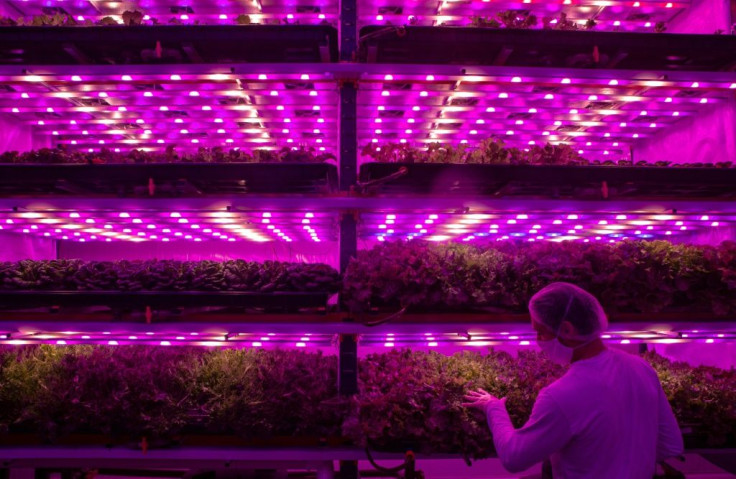
This is Pink Farms, the first vertical farm in the teeming Brazilian city of 12 million people, where land is scarce and produce usually has to be shipped in from afar.
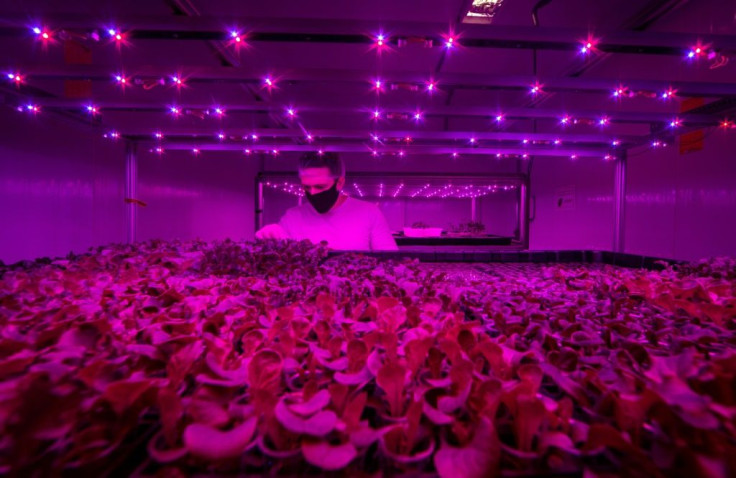
The farm consists of two towers, each about the surface area of a small studio apartment, one eight stories high and the other 10.
Using soil-less growing technology, an irrigation system that recycles its own water, and red and blue LED lights -- which combine to make pink -- the towers supply around 100 times more food than a similar surface area of farmland, with 95 percent less water, according to co-founder Gerardo Maia.
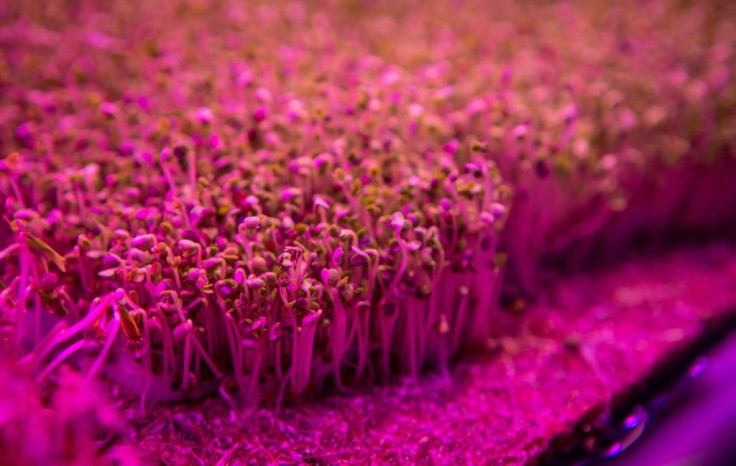
Maia, a 29-year-old engineer, launched the project in 2018 with two colleagues, and started production last year.
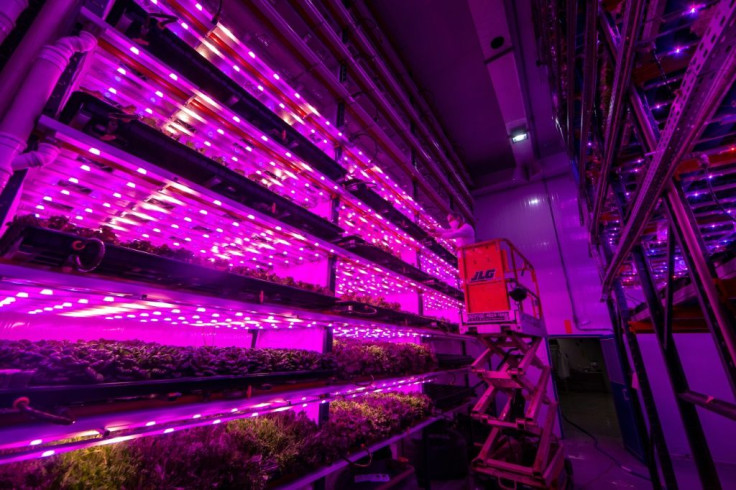
The company soon carved out a niche for itself selling fresh, hyper-local produce to restaurants.
Everything was going well until the coronavirus pandemic hit.
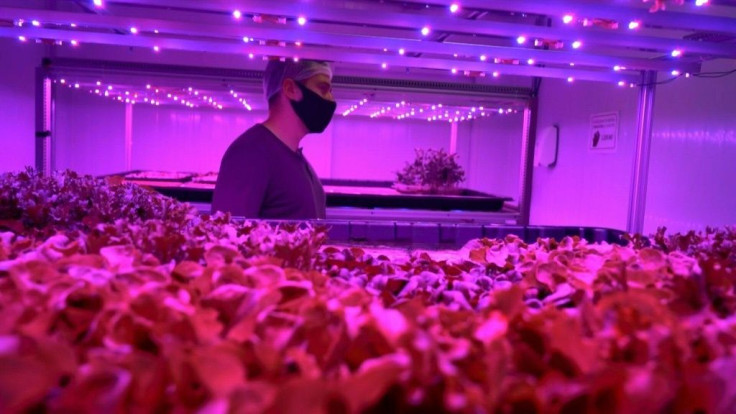
As cases soared in Brazil, now the country with the second-highest death toll worldwide after the United States, Sao Paulo, the epicenter of the outbreak, went into lockdown -- including Pink Farms' clients.
"The pandemic has been really hard. We had to find another path. But we've come up with other opportunities. It's all about constantly improving," said Maia, as employees in protective masks, gloves and caps carefully sorted and packaged produce.
To respond to the pandemic, Pink Farms shifted its sales online and developed a new product line, "microgreens" -- early-harvest leaf vegetables packed with nutrients and flavor.
Maia says he does not believe vertical farming will replace traditional farming.
But as Brazil struggles with the encroachment of farms and ranches on the Amazon rainforest and other environmental problems linked to agriculture, he says the idea of "growing up," not out, represents a valuable alternative.
"That's why we say this is the productive process of the future."





















